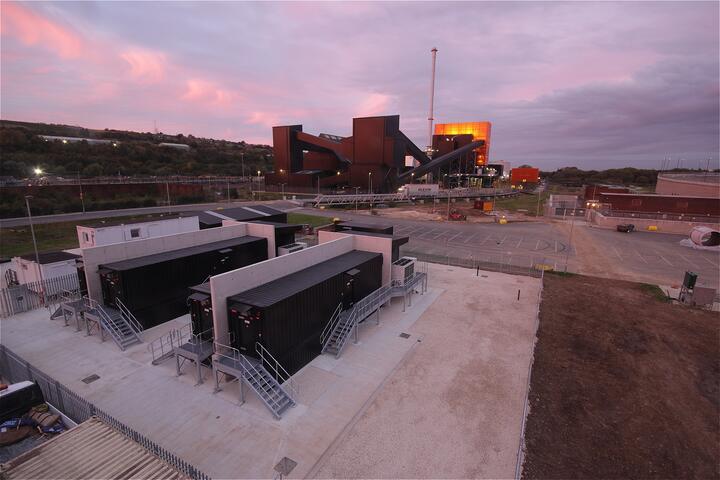Exploring the feasibility of hydrogen for the steel industry
23 November 2022A new study to test the viability of hydrogen as a climate-friendly fuel for steelmakers has been launched by a consortium of academics, and industry partners, including the University of Sheffield Advanced Manufacturing Research Centre (AMRC).
The initial feasibility study will explore the potential of generating hydrogen from biomass - a renewable energy source, which can be used as an alternative to fossil fuels in South Yorkshire’s energy intensive steel industry, supporting cleaner energy and a greener economy. It will also investigate the supply chain needed to help industrial customers switch away from natural gas as a fuel - focusing on hydrogen production, distribution and end use in industrial steel processes.
Renewable energy supplier E.ON, the University of Sheffield, Sheffield Forgemasters and Forged Solutions, alongside Chesterfield Special Cylinders and Glass Futures are also part of the project. The Department for Business, Energy and Industrial Strategy (BEIS) and its Net Zero Innovation Portfolio (NZIO) have funded the study and will be based at E.ON’s Blackburn Meadows renewable energy park in Sheffield.
Stuart Dawson, the AMRC’s chief engineer for hydrogen, said: “The AMRC is committed to supporting the decarbonisation of industrial processes to deliver – a decarbonised, competitive and resilient UK manufacturing sector.
“Using our industrial contacts and those in the wider R&D ecosystem, the AMRC helped to bring key capabilities into the consortium such as Glass Futures and the University's Translational Energy Research Centre (TERC),” Stuart added.
“The University’s main contribution to the project was combustion modelling to understand how fuel switching from natural gas to hydrogen affects a furnace’s thermal performance and emissions. In addition to the Translational Energy Research Centre’s (TERC) modelling capability, the AMRC has other tools in its decarbonisation tool kit, such as emissions auditing, along with the use of digitalisation and data analytics to help reduce energy consumption.”
Michael Lewis, E.ON UK CEO, said: “Hydrogen will play a significant role in our energy future, mainly powering energy-intensive industries and long-distance transport. It sits alongside the drive for heat pumps meeting domestic heating needs and a greater role for district energy schemes in urban areas.
“Our Blackburn Meadows plant is the perfect example of a range of technologies coming together to provide a solution for an entire city and generating green hydrogen for Sheffield’s world-renowned steelmakers means an economic win for them, greater security of their energy supplies as well as better air quality for the city and accelerating Sheffield’s energy transition to net zero.”
Professor Mohamed Pourkashanian, OBE, leading on the project for the University of Sheffield, said: “To reach a hydrogen economy there will be many barriers, not least in fully understanding and investigating the technical challenges faced in switching to hydrogen as a fuel, and how it will integrate into our existing infrastructure.
“This project takes a vital step in making this technology a reality for industrial partners, and its findings will not only support the decarbonisation of the steel industry, but also has potential to bring practical and theoretical knowledge to other foundation industries.”
The study is set to run up until February 2023 – and if it proves to be successful, the project could progress to a technical pilot project on the Blackburn Meadows site, with future potential for expansion if the project is taken forward to a full commercial demonstration.

